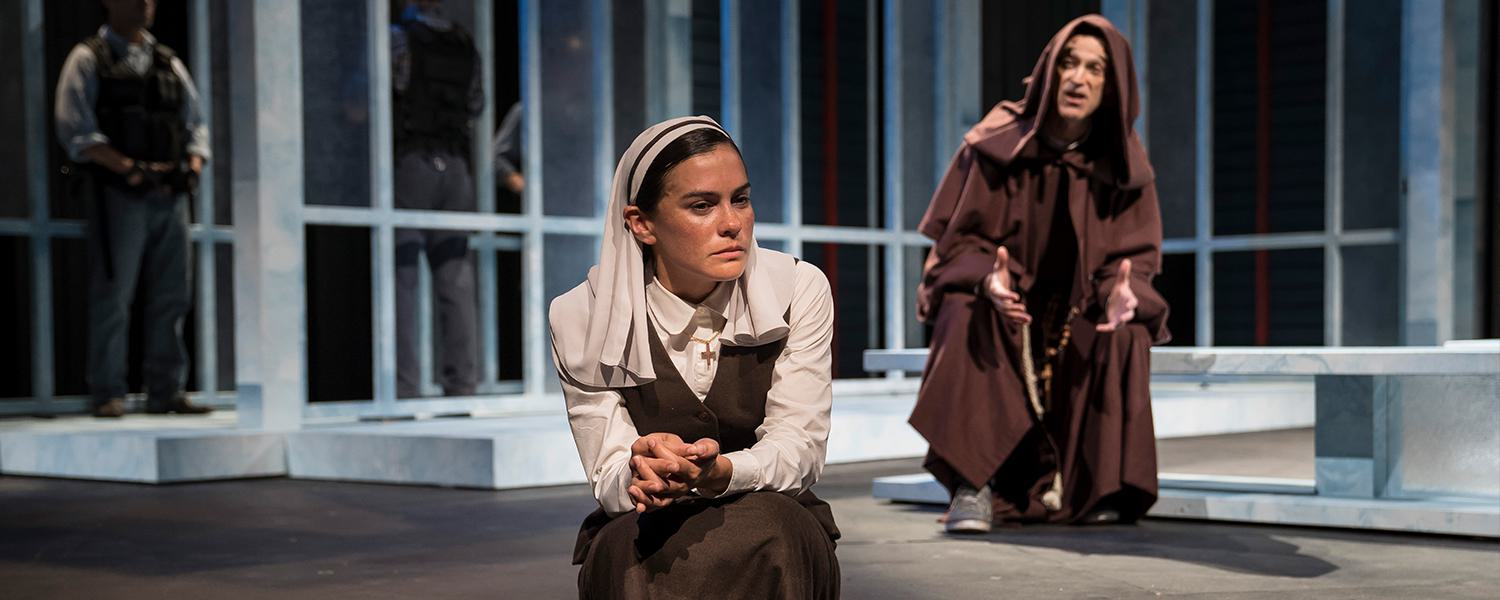Contact Us
American Players Theatre
5950 Golf Course Road
P.O. Box 819
Spring Green, WI 53588
(Map)
Box Office: 608-588-2361
Administration: 608-588-7401
Fax: 608-588-7085
American Players Theatre
5950 Golf Course Road
P.O. Box 819
Spring Green, WI 53588
(Map)
Box Office: 608-588-2361
Administration: 608-588-7401
Fax: 608-588-7085

By Lindsay Christians, The Capital Times | August 20, 2018
Shakespeare’s “Measure for Measure,” currently in a fresh new production at American Players Theatre in Spring Green, feels like one big test with a bunch of smaller tests nestled inside.
Some of the challenges feel arbitrary, like bait — "What does he say about me when I'm not there?" Many are cruel. All are wrapped up with honor or responsibility — in the broadest sense, what we owe to each other, and what power lies in simply being believed.
The first test comes for Angelo, played by Marcus Truschinski with cool detachment and a mandarin-collar blue jacket that makes him look like a Bond villain. The Duke has decided to stage his own version of “Undercover Boss” in Vienna, and he picks Angelo to take the reins. Angelo’s not so sure.
“Let there be some more test made of my mettle,” Angelo says, “before so noble and so great a figure be stamped upon it.”
But the Duke goes, and in his chair Angelo cracks down. A literary cousin to the icy Monseigneur in “The Hunchback of Notre Dame,” Angelo becomes both determined to cleanse the streets of fornicators and “bawds” and deny his own moral weakness.
Truschinski, self-contained and unsmiling, gives Angelo enough tortured humanity to make him frighteningly real. In a deeply uncomfortable scene that reinforces the timelessness of the #MeToo movement, Angelo abuses his power even as he punishes others for the same perceived sin.
This is where Isabella’s test comes in. When her brother Claudio is violently separated from his pregnant fiancée and sentenced to death, the would-be nun is encouraged to “assay the power (she has),” soften her voice and plead his case.
Melisa Pereyra, as the severe and impassioned Isabella, centers her character (and arguably the entire play) with a steely strength that seems to emanate from her core. She’s furious and desperate, a Shakespearean Antigone, forced to appeal for her brother despite believing him a sinner herself.
Angelo is more than swayed. When he hints at, then fully crosses a line, Isabella vows to expose him. He responds with that old chestnut: “Who will believe thee?”
Read the full review here.